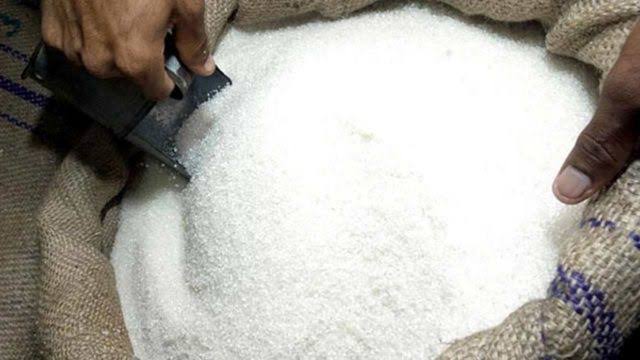Despite 10 per cent import duty, 60 per cent levy and incentives under the Federal Government’s Backward Integration Policy (BIP), investors in sugar still prefer to bring $2 billion (N3.3 trillion) worth of raw Sugar from Brazil and other countries annually.
Currently, the country is battling with two million tonnes of sugar deficit since 2014 when the first phase of BIP was launched as they failed to meet local projections and demand, leading to huge deficit.
Worried by this, the Executive Secretary of the National Sugar Development Council (NSDC), Mr Kamar Bakrin, said that the council would launch commercial sugar farming and an out-growers programme in 2025.
According to him, there is urgent need for the country to reduce its dependence on imported sugar and strengthen domestic production.
It was learnt that under the BIP, NSDC allocates a certain import quota to the sugar firms annually based on their BIP performance in line with their strategic discretion.
In the special consideration, Dangote Sugar Refinery (DSR) was allocated 864,000 tonnes of import capacity; Golden Sugar Company (GSC); 400,000 tonnes; BUA Sugar Refinery (BUA), 386,000 tonnes and Bacita Sugar Company (BSC), 50,000 metric tonnes.
However, the firms have been hiding under the allocation to bring more raw sugar into the country, thereby crippling the BIP. It was gathered that since the implementation of the policy in 2014, BUA, Flour Mills, Dangote and other sugar firms imported 1.45 million tonnes; 2014, 1.47 million tonnes; 2015, 1.46 million tonnes; 2016, 1.47 million tonnes; 2017, 1.82 million tonnes; 2018, 1.87 million tonnes; 2019, 1.87 million tonnes; 2020, 1.89 million tonnes; 2021, 1.88 million tonnes and 2022,1.93 million tonnes despite the incentives provided to encourage them.
Also in 2022, the firms were granted concession by NSDC to import 1.7million tonnes of sugar valued at N637billion ($909.4million).
Bakrin, however, explained that the new proposed commercial sugar farming and an out-growers programme would enable investors to tap into Nigeria’s substantial agricultural potential, providing new employment opportunities and boosting economic growth, adding that the shift could ultimately position Nigeria as a regional leader in sugar production and self-sufficiency.
He explained: ‘The council also intends to de-risk new ventures, commonly referred to as green field projects. Planned support mechanisms include offering project design guidance, facilitating land clearing, and enhancing capacity in farm mechanisation, all geared towards strengthening the viability and appeal of local sugar investments.”
Also, he noted that there were numerous untapped opportunities in sugarcane derivatives, which had applications beyond sugar production, saying that by-products of sugarcane could be transformed into biofuels, polymers, bioplastics, and even sustainable aviation fuels, while excess biomass can be used for power generation.
Recalled that the Federal Government has said that the investments ranging between $3 billion and $5 billion under Phase 2 of NSMP was being anticipated in the next 10 years.
This new policy was rolled out after the first plan, spanning 10 years failed to yielded result. The executive secretary explained that the initiative aligns with the President’s dedication to achieving the NSMP’s objectives of attaining self-sufficiency in sugar production, fostering job creation, and advancing industrialisation.
During a gathering of the Sugar Industry Monitoring Group (SIMG) in Abuja the executive secretary noted that the plan was designed to achieve a minimum production capacity of 2 million tonnes of sugar, generating 400 MW of electricity and fostering the creation of 110,000 jobs throughout the entire value chain in the country.








